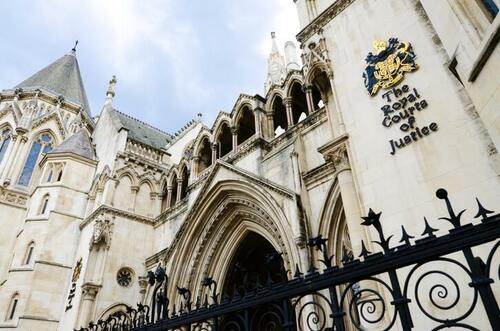Authored by Thomas Brooke via Remix News,
The High Court has lifted a super-injunction obtained by the UK government that had concealed a massive £7 billion secret resettlement program for thousands of Afghan nationals, following a damning judgment that accused ministers of suppressing democratic accountability and misleading Parliament.
The injunction, originally imposed in September 2023, blocked not only media reporting on a major data breach involving thousands of Afghan collaborators with British forces, but also the very existence of the injunction itself. Now, nearly two years later, Mr. Justice Chamberlain ruled that the order must be discharged, citing “serious interference” with press freedom and a failure to justify continued secrecy.
The leak, which occurred in early 2022, exposed personal details of tens of thousands of Afghans who had applied to relocate to the UK following the Taliban takeover. The Ministry of Defence (MoD) learned of the breach more than a year later, in August 2023, when names appeared on Facebook. Instead of acknowledging the error, the government initiated a covert admissions scheme to bring thousands of affected individuals — and their families — to Britain, while silencing any media inquiry under the cover of national security.
With the approval of family reunification for all those affected, the true number of Afghans imported into Britain could be significantly higher than the number directly affected by the data breach.
During closed hearings, Mr. Justice Chamberlain expressed alarm over the scale of the deception. At a behind-closed-doors hearing in November 2024, reported on Tuesday by The Telegraph, he remarked, “When you are dealing with public expenditure of that magnitude — £7 billion — it’s not possible to lose that amount of money down the back of the sofa.” He went on to highlight internal communications in which government officials discussed using a statement to Parliament as “cover” for the scheme, rather than providing full disclosure.
“Am I going bonkers? This is a very, very striking thing,” the judge said. “The statement to Parliament will ‘provide cover’. It is a completely unprecedented situation.”
The judge condemned the use of the courts to facilitate what barrister Jude Bunting KC called a deliberate effort “to mislead the public.” The super-injunction, Bunting argued, prevented public scrutiny on key political issues such as immigration and public spending: “It is corrosive of democracy. It prevents the public from being informed about the reason for billions of expenditure, at a time when immigration is at the forefront of debate.”
Mr. Justice Chamberlain echoed this concern, saying the order had “the effect of completely shutting down the ordinary mechanisms of accountability which operate in a democracy.” He added: “It not only prevents public discussion of the full reasons for the government’s policy. It prevents the public from knowing of the very existence of the policy.”
As reported by The Times, he told the government’s barrister at one of the secret hearings, “You’re going to have to say something about all of this, because you’re spending £7 billion and you’re letting in many thousands of people that you wouldn’t have been letting in before.”
The U.K. newspaper noted: “Almost 24,000 Afghans affected by the breach have been brought to the UK already or will be in the future.”
Despite the magnitude, the government had not informed the public, Parliament, or even many of the individuals whose data was leaked until now.
The judgment published on Tuesday also criticized the way intelligence assessments had been used to justify the injunction. In a review that ultimately led to the order’s lifting, a retired civil servant concluded that the leaked dataset posed only marginal risk to individuals and that the Taliban were unlikely to use it to identify targets. The judge found this “fundamentally undermines the evidential basis” for continued secrecy.
Super-injunctions, usually associated with celebrities, were never intended to shield vast immigration schemes from public oversight. “When the government obtains one,” Chamberlain said, “it is likely to give rise to understandable suspicion that the Court’s processes are being used for the purposes of censorship.”
In the wake of the judgment, the government has been forced to admit that the data leak occurred in 2022 but was not publicly acknowledged until now; that it included a database of 33,000 records; that a new secret relocation program was launched in response, moving thousands of foreign nationals to Britain; and that the individual responsible for the leak has not been publicly identified or disciplined.
In Parliament on Tuesday, Defence Secretary John Healey offered a “sincere apology” and confirmed that affected individuals were only informed this week, over three years after their data had been exposed.
While the government has now applied for a narrower injunction to prevent publication of sensitive personal data, the broader secrecy has been irreversibly broken. As Mr. Justice Chamberlain concluded, “There is no tenable basis for the continuation of the super-injunction. This is particularly so given the serious interference it involves with the rights of the media defendants to freedom of expression and the correlative right of the public to receive the information they wish to impart.”
